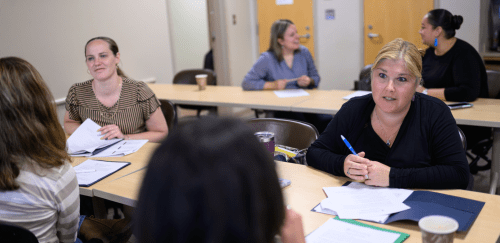For more information

Kelsey Collins
Technical Assistance Specialist, Adult Services

Conflict-Free Case Management (CFCM) helps people get the services and supports they need with the guidance from someone who is separate from the organizations delivering those services. This ensures that each person’s goals, preferences and voice come first.
The people doing this work are called Conflict-free Case Manager and Independent Facilitators.
Both Independent Facilitators (IFs) and Conflict-free Case Managers (CFCMs) support people in leading their person-centered planning process and help individuals create plans that reflect what they want for their lives.
Why conflict-free support matters
Conflict-free Case Management is required by Medicaid.
Independent Facilitation is required under a Consent Decree Addendum.
Both roles overlap in their values and skills, and both aim to support individual autonomy and quality of life.
This work is part of Long-Term Services and Supports (LTSS) and Home and Community-Based Services (HCBS).
We serve:
The Sherlock Center provides training and ongoing support to Independent Facilitators (IFs) and Conflict-free Case Managers (CFCMs).
We focus on upskilling and creating a strong community of practice where professionals can learn from one another.
Training topics include:
By building knowledge and skills, the Sherlock Center helps ensure that people receiving services have the best possible support and that IFs/CFCMs feel confident in their roles.

Kelsey Collins
Technical Assistance Specialist, Adult Services